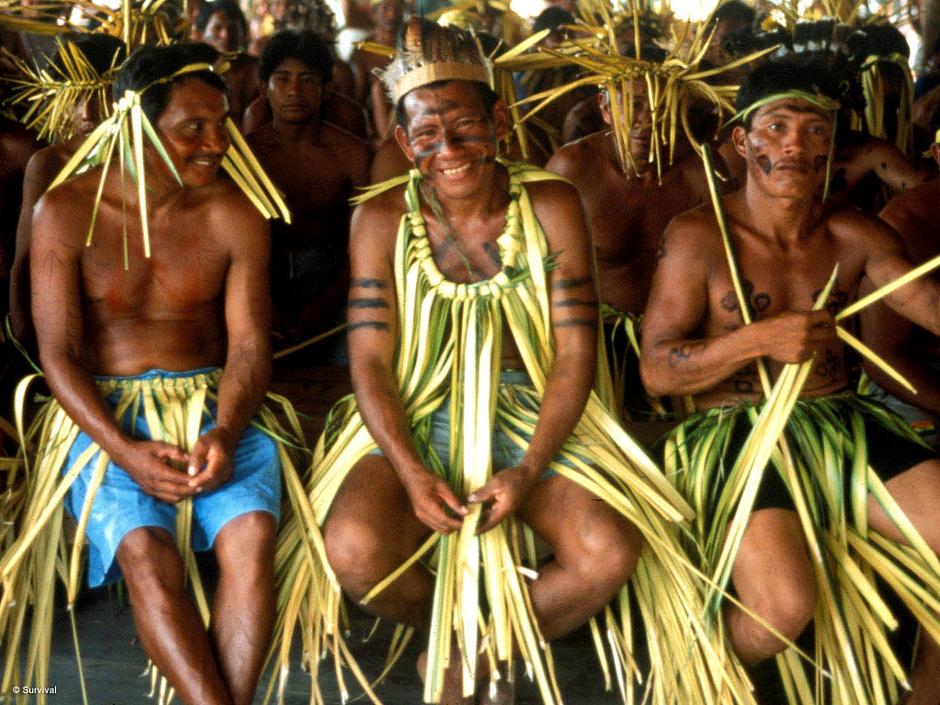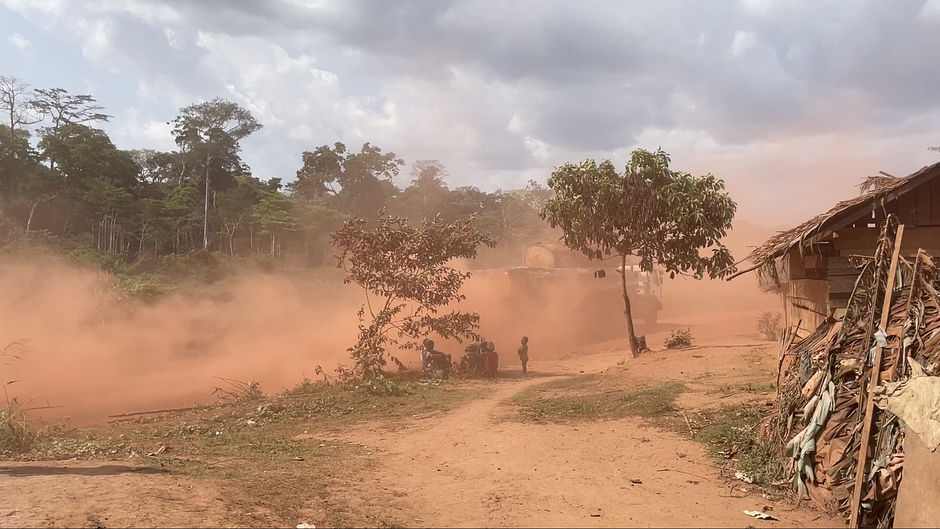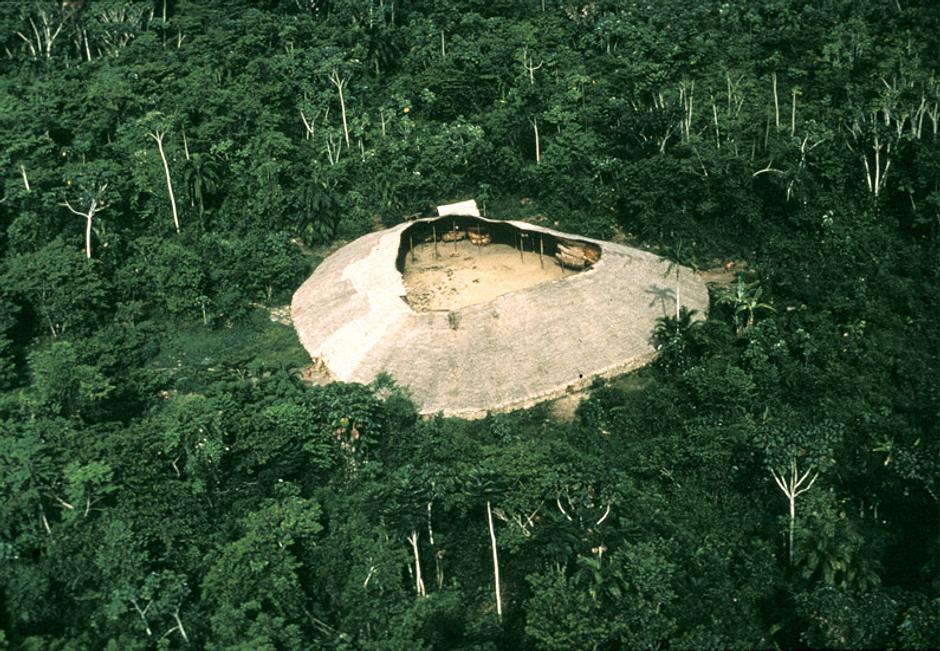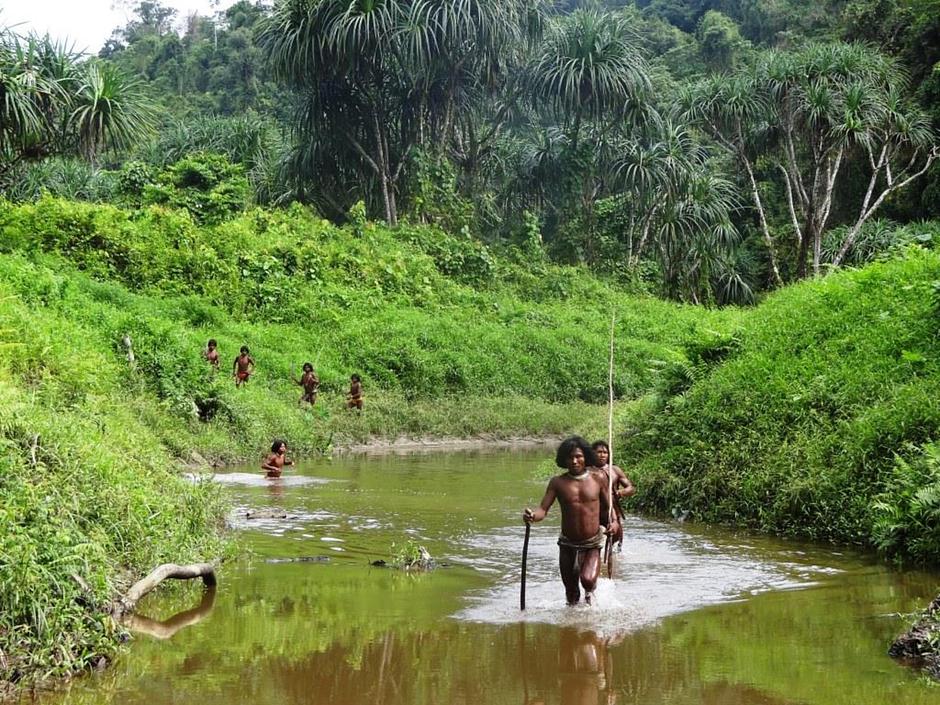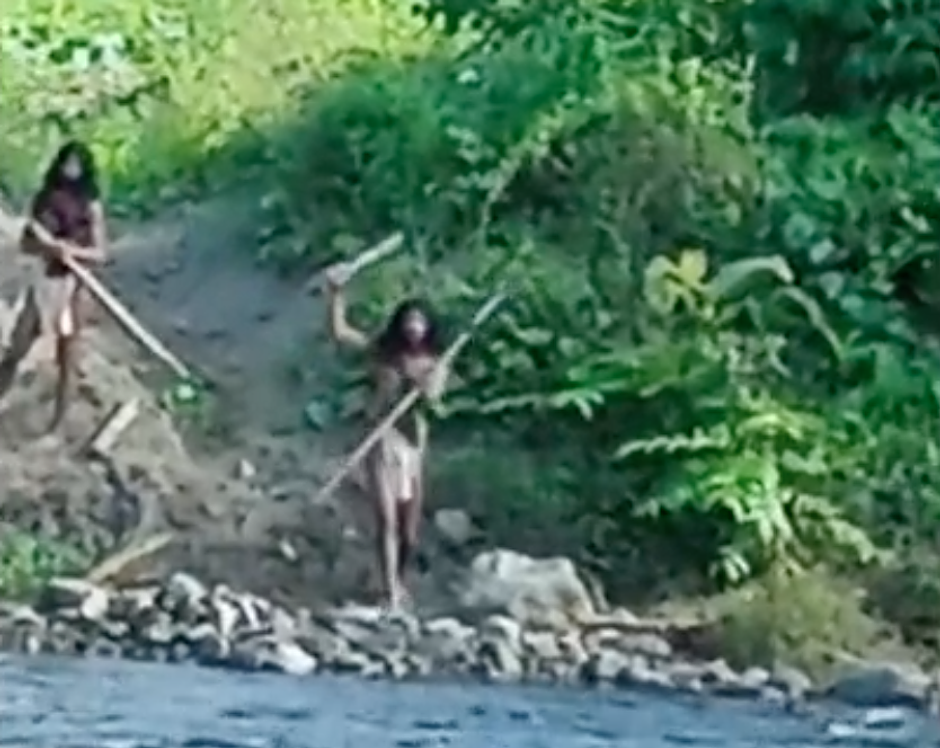“We Guarani are fighting for our sacred land."
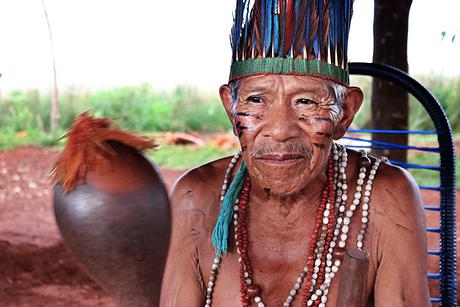
Sarah Shenker, Senior Research and Advocacy Officer at Survival International, visits a Guarani community under siege in Mato Grosso do Sul, Brazil
A version of this article appeared on the National Geographic Blog on June 28, 2018
Three gunshots. Bang, bang, bang.
The night was pitch black. It was impossible to know where the gunmen were.
“They’re sending a message,” Genito Guarani said. “They’re watching our every move.”
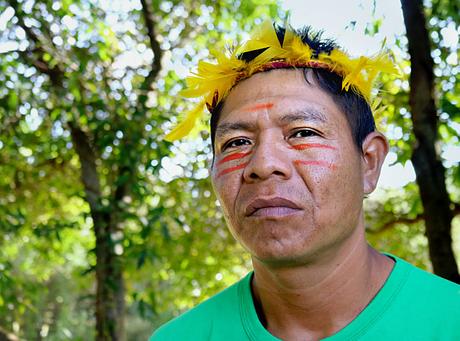
Like everyone at Guaviry, Genito knows that he belongs to this land, more than it could ever belong to him. His ancestors are buried here. The people here understand the curves of these streams and the dips and peaks of their hills. They have depended on this land, shaped it, and nurtured and protected it for generations. They call it the tekohá, the “land without evil”.
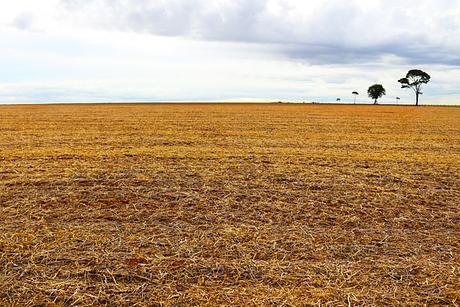
The gunshots began when the tekohá was stolen. In the 1950s and 60s this land was invaded and colonized by ranchers who razed the forest to the ground to make way for cattle, then soya, corn and sugarcane. Thousands of Guarani are now forced to live in overcrowded reserves and in makeshift camps on the sides of highways, where rates of malnutrition, disease, alcoholism and suicide are soaring, and where Guarani leaders are targeted and killed by the ranchers’ gunmen. It is one of the most urgent humanitarian crises of our time.
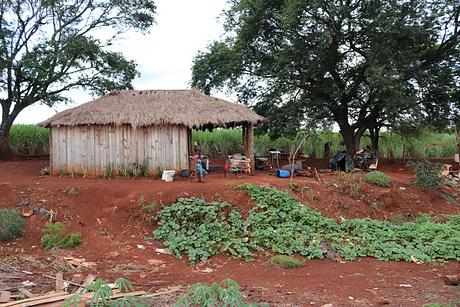
Yet this land is Guarani land and they belong to each other still. The Guarani know where to collect the few remaining medicinal plants, and they know the hidden places where they might still find animals to hunt to feed their families. The inhabitants of Guaviry understand implicitly that only here, on their tekohá, can they truly be Guarani.

“We need our land for our families and our future, for our survival as a people,” Genito said. “Our land is sacred. We don’t exploit it or throw pesticides on it… For us, land is life. It’s just like a human being.”
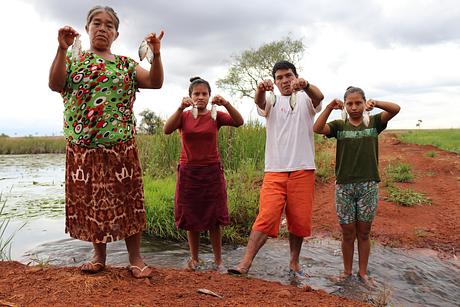
This injustice has been done to them both; to this people and to this land. According to Brazilian law, the government should have mapped out and protected the Guarani’s land decades ago. But the process has come to a stand-still and powerful politicians of the anti-Indigenous agribusiness lobby in Congress are now trying to block it altogether, through a series of proposed bills and changes to the Constitution.
“Now, they’re out to kill us with the law, as well as with their guns,” Genito warned.
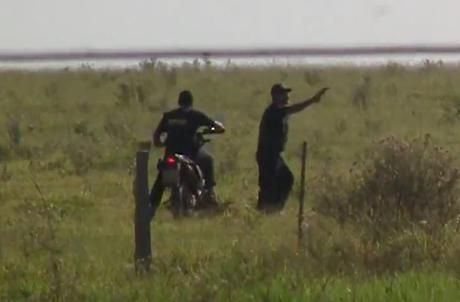 © Aty Guasu/Survival
© Aty Guasu/Survival
Genito is relieved to be alive. He has received several death threats. Many of his relatives have been assassinated by the ranchers’ gunmen. His father, Nísio Gomes, was murdered by these hired goons after leading the families of Guaviry back to a small patch of their land in 2011. Those families are now on constant alert
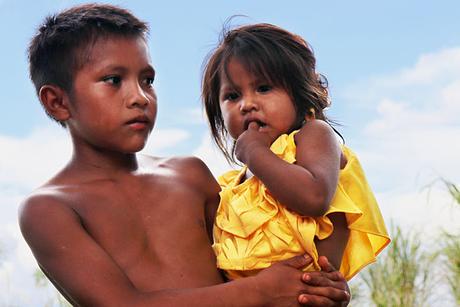
The children of Guaviry have seen bullets flying past their faces. Some of them have been warned to mask their identity as they, too, are targets for the gunmen. They find themselves subject to racism and bullying when they travel to the nearby school. This is a community under siege, fighting bravely for the land that is still their life.
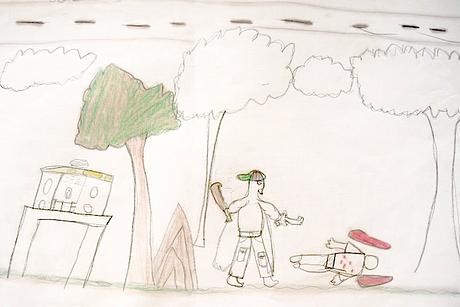
Jonara, Genito’s niece, said: “We Guarani children and teenagers are fighting for our sacred land. It’s so sad that the ranchers are destroying our forest and our animals, and making us suffer. The ranchers and gunmen do whatever they want. They kill us, and then they disappear. We hug our parents every day, because we don’t know when the gunmen might kill us. Why are they doing this to us? We Indigenous people were the first ones to live here in our Brazil!”
But their Brazil is slipping away. To echoes of rapturous applause, presidential candidate Jair Bolsonaro promised that, “There won’t be even one more centimeter of Indigenous land” if he becomes Brazil’s next president. With the national elections due in Brazil in October 2018, tensions, already high, are becoming increasingly violent. Many of the ranchers on Guarani land are closely linked to state and federal politicians; some of the ranchers are even politicians themselves.
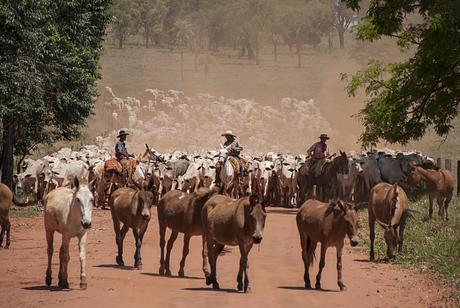
“Reoccupations are the only way forward for us now.” Genito said. “So we returned here. The ranchers then sent dozens of gunmen to surround and attack us day and night for 80 days and 80 nights. Bullets were flying left, right and center. But we stood firm. We didn’t budge. We won’t budge.”
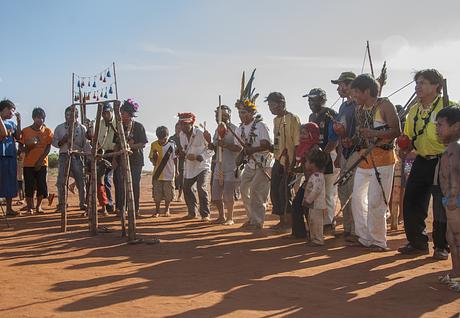
The Guarani know better than to wait for the government to take action. Genito’s family recently walked back to a sacred part of their land and took over part of the ranch there, including the rancher’s house and a cluster of outhouses. They feel stronger and stronger here, on their land. Their sense of self, their confidence and identity is reinforced with every extra hectare taken back under their control. They long to recover all of their tekohá, their “land without evil”.
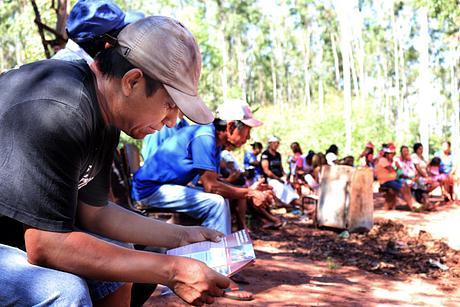
Survival International has been working with the Guarani for decades, leading the global fight against their persecution and supporting their struggle to return to their territory. “We need international help,” Genito said. “Survival defends our lives and we will continue to live, with Survival’s support. We pray that our supporters around the world remain strong and continue to fight with us, for as long as it takes.”
The reoccupied land at Guaviry now boasts a prayer house, a central hub for the community where they gather at night to communicate with their gods and to sing and dance to further strengthen their resistance.
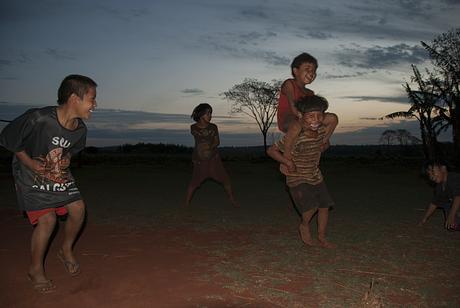
“We are happy that you’ve come”, the children chant, as we dance in the circular motion of the Guarani’s traditional guaxiré dance.
The children’s re-energized voices ring loud against the silent black night.
Three gunshots. Bang, bang, bang.
A few seconds of silence, and then the singing resumes.
“One day, we will live in peace on our land,” Genito told me. “It’s tough. We are being killed along the way, but if we leaders are killed, our families will carry on fighting… We won’t give up until we have our land back.”
__________
More than 150 million men, women and children in over 60 countries live in tribal societies. Find out more about them, the struggles they face, and how you can help – sign up to our mailing list for occasional updates.


